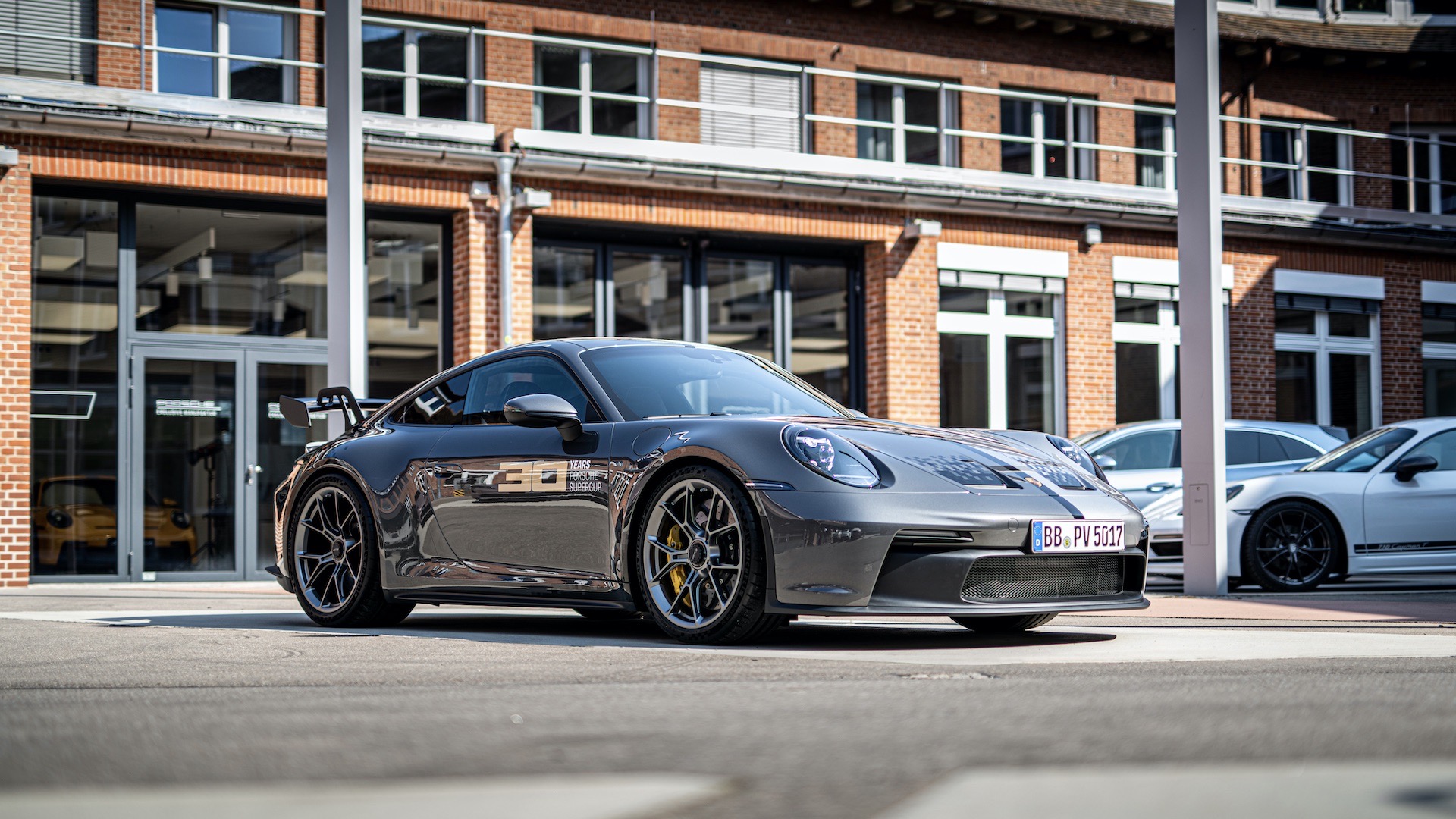

Porsche’s initial public offering Thursday hit the “Sport Response” button and hasn’t looked back yet. The automaker’s IPO was Germany’s second-largest ever, behind German telecom company Deutsche Telekom in 1996, and helped to raise nearly $19 billion for Porsche’s coffers, likely to fund the company’s upcoming push toward electrification.
What’s more surprising than the surge in trading Thursday was that Porsche’s market cap nearly equaled parent-company Volkswagen’s valuation, according to Reuters. (Edit note: Yes, the market cap is not the same as valuation. We know.)
Trading on Porsche’s 911 million shares of common stock was issued toward the top of the valuation range in Frankfurt, trading as high as 86.54 Euros before leveling off near 82.90 Euros, which is close to the initial issue price. The initial trading volatility of Porsche’s stock Thursday is common, although the IPO was anything but.

That’s because Porsche pinned most of its financial strength on its high-margin, exclusive sports cars that are highly prized by collectors. In its public paperwork, Porsche touted its overall viability in the special-edition models of its range that could exceed 100 percent of the price of the base versions from which they’re made. It was an especially risky play considering most of the world markets are reeling from high inflation, potential political instability, or the lasting remnants of a global pandemic that still shutters businesses for entire financial quarters in certain places.
Porsche says that by the end of 2022, it will be more autonomous under VW’s rule and have greater freedom to develop separate platforms and models. That could be good news for enthusiasts, although it’s likely that Porsche’s bread-and-butter SUVs may likely lean into shared development with other Volkswagen models.
“We aim to redefine the concept of modern luxury by combining luxury with sustainability and social commitment,” Porsche CEO Oliver Blume said in a statement. “Porsche wants to grow with its luxury products and services and assume social responsibility.”
Porsche said its aggressive electrification strategy would result in the company delivering more than 80 percent of its cars to consumers as full-electric vehicles by 2030. What’s more, Porsche said its supply chain would be carbon-neutral by 2030 and a net carbon-neutral lifecycle for its products.
There’s room for optimism too. On Thursday, Porsche’s stock was trading at roughly seven times its earnings, which is far behind rival Ferrari’s 40 times earnings trading price despite having a larger manufacturing footprint and wider consumer base. Put simply, there could be even more gas in the tank for Porsche’s stock offering in the future.